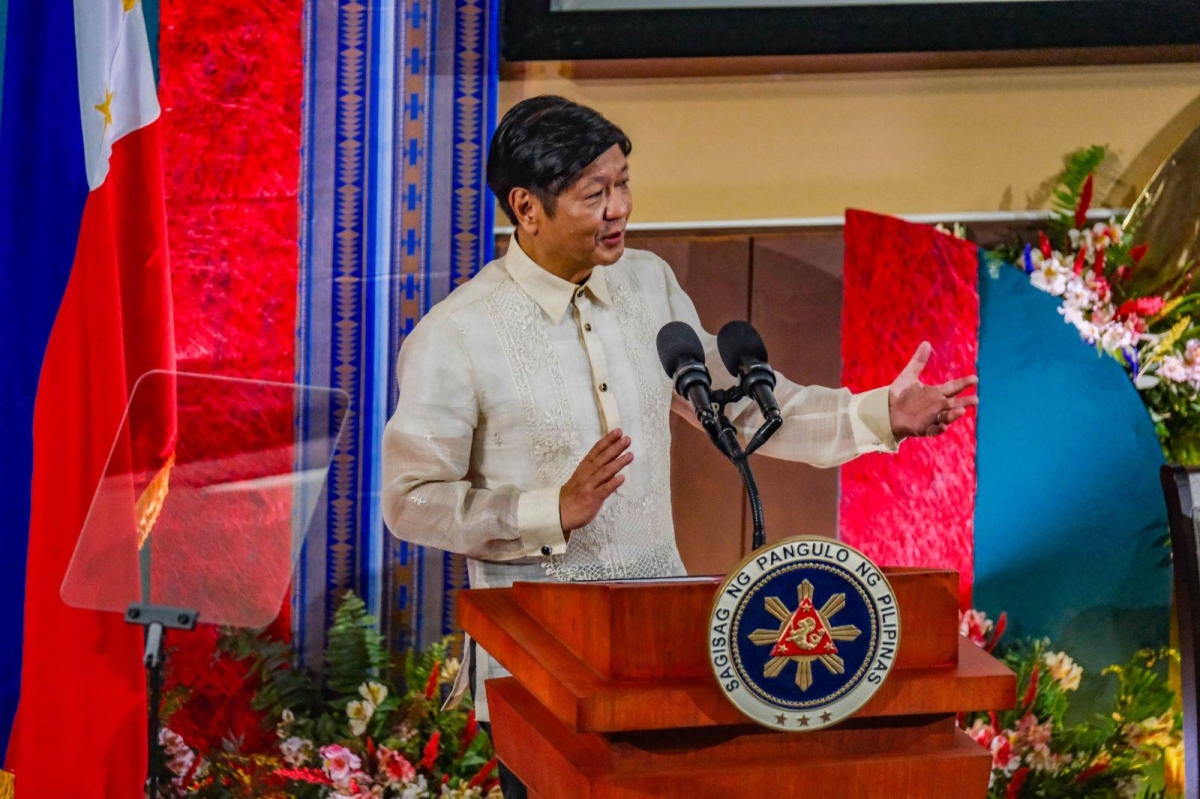MANILA, Philippines: President Ferdinand Marcos Jr. reaffirmed on Tuesday that the Philippines would not cooperate with any investigation conducted by the International Criminal Court (ICC). This statement comes in response to reports of ICC representatives entering the country.
In a media interview following an event in Quezon City, Marcos clarified his position, stating, “Let me say this for the 100th time. I do not recognize the jurisdiction of the ICC in the Philippines. I consider it a threat to our sovereignty. The Philippine government will not lift a finger to help any investigation that the ICC conducts.”
While reiterating his stance, Marcos emphasized that ICC representatives could visit the Philippines as ordinary people, but the government would not extend any assistance to them. He also made it clear that the government would closely monitor their activities to ensure they do not come into contact with any agency of the government.
Addressing government agencies and officials, Marcos directed them not to cooperate with the ICC if they attempt to make contact. He stated, “Don’t answer, that would be our reply — that we don’t recognize your jurisdiction, therefore, we will not assist in any way, shape, or form, any of the investigations ICC is doing here in the Philippines.”
The ICC had approved the reopening of an inquiry in January 2023 regarding alleged human rights violations during the presidency of Rodrigo Duterte. The inquiry had been suspended in November 2021 but resumed following the ICC Appeals Chamber’s denial of the government’s appeal in July 2023.
In 2019, the Philippines withdrew from the Rome Statute after the ICC initiated an investigation into alleged state-backed killings related to the Duterte administration’s war on illegal drugs. President Marcos Jr., upon assuming office in 2022, emphasized that the ICC no longer has jurisdiction over the Philippines since the country had severed ties with the tribunal three years prior.
President Marcos Jr.’s firm stance against ICC investigations reflects the government’s belief that the ICC’s jurisdiction poses a threat to the country’s sovereignty. The decision to not cooperate with the ICC aligns with the Philippines’ withdrawal from the Rome Statute in 2019.
While the ICC has the authority to conduct investigations into alleged human rights violations, each country has the right to determine its level of cooperation. In this case, the Philippines has taken a strong position against ICC involvement, asserting its independence and sovereignty.
It is important to note that the Philippines’ stance on the ICC is not unique. Other countries, such as the United States, Russia, and China, have also expressed reservations or withdrawn from the ICC. These decisions are often driven by concerns over sovereignty and potential political motivations behind the investigations.
The ICC’s role as an international tribunal is to ensure accountability for the most serious crimes that fall within its jurisdiction. However, disagreements between the ICC and member states can arise due to differing interpretations of jurisdiction and concerns over potential interference in domestic affairs.
As the situation between the Philippines and the ICC continues to unfold, it remains to be seen how this standoff will impact future international cooperation and the pursuit of justice for alleged human rights violations. The Philippines’ refusal to assist in ICC investigations underscores the complexity and challenges faced by international bodies in carrying out their mandates while respecting the sovereignty of member states.
While the Philippines’ decision may be viewed as controversial by some, it is ultimately up to the country to determine its course of action regarding international investigations. As the situation develops, it is crucial for all parties involved to engage in open dialogue and seek common ground to ensure justice, accountability, and respect for sovereignty.
Source: The Manila Times








